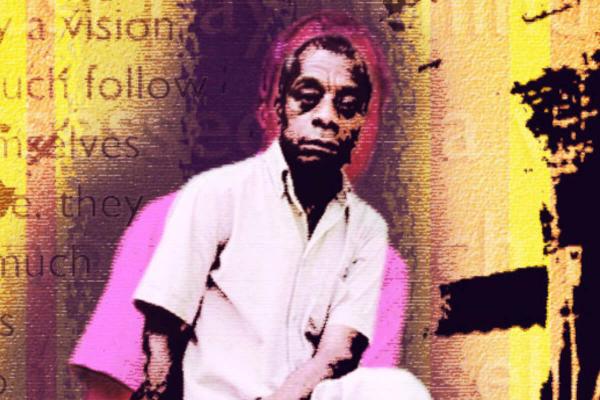James Baldwin was widely known as the most eloquent literary spokesperson in the black struggle for equality during the civil rights movement. A novelist, playwright, poet, and essayist, he was said by reviewers to have been able to "make one begin to feel what it is really like to have a black skin in a white man's world." Among Baldwin's works are Go Tell It on the Mountain, Another Country, and The Fire Next Time. Baldwin died of stomach cancer, on December 1, 1987, at his home in southern France, where he spent much of his life following the assassination of Martin Luther King Jr. in 1968. He was 63. The following reflections on James Baldwin are offered by Sojourners contributing editor Vincent Harding, who was a professor of religion and social transformation at Iliff School of Theology in Denver, Colorado when this article appeared. -- The Editors
We have lost a great lover.
That was clear at the beginning of December when the first telephone call reached me, bearing the stunning news of James Baldwin's death. It is even more apparent now, as the more measured rhythms of monthly journalism deadlines move us beyond the initial shock and sadness, inviting us to extend, and thereby deepen, our mourning and our remembering. Indeed, now it is possible to carry Jimmy's memories into all the ambivalent national celebrations of his friend, Martin King, as well as to let his powerful sense of the humanizing uses of tragedy illuminate the meaning of what we call Black History Month, observed each February.
Such a conjunction of recollection and hope is more than accidental, for Baldwin cared deeply about King and understood his "much-loved and menaced" younger brother far better than most of us. In the same way, it is surely the case that no one in our generation felt more deeply or expressed more eloquently all the harshened beauty and the creative significance of the African-American pilgrimage on this soil. And now Jimmy continues his own journey -- relieved, I trust, of the continuing anguish which inhabited his fragile but resilient being here on earth.
I shall miss him. Having begun where he began, in Harlem (his seven-year start on me and a variety of different life-choices did not allow us to meet consciously until the Southern freedom movement brought us together -- but I know our earlier steps must have met somewhere on the beleaguered streets of our hometown), having crossed paths and shared hopes and fears together in a variety of other times and places, I am tempted to feel a special, personal loss.
But neither Jimmy's pain nor his love could ever be monopolized. He quite literally belonged to us all whether we wanted him or not. And that was his great gift, his awesome, sometimes terrifying, offering -- terrifying, partly because he saw and spoke and wrote so much that we recognized as truth, partly because he challenged all of us to link arms and lives and walk through the purifying fires with him.
Read the Full Article

